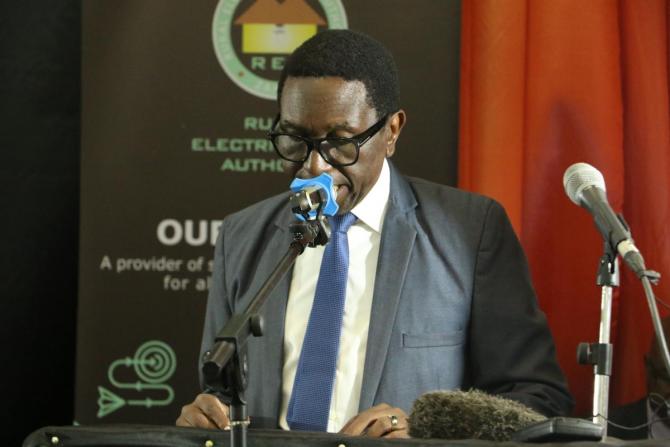Minister of Energy Peter Kampala has announced that the government has formulated comprehensive measures to ensure the provision of affordable and sustainable energy for all citizens.
In a press briefing held in Lusaka today, Mr Kapala highlighted the urgent need to address the energy deficit issue that the country is experiencing due to the el nino induced drought.
Mr Kapala explained the immediate and long-term strategies designed to mitigate the power crisis, which has seen an alarming generation deficit of 750 megawatts (MW).
He stated that to combat the immediate power shortage, Zambia is ramping up power imports, which currently stand at 188 MW adding that, ZESCO Limited has redirected 160 MW from export contracts back to the domestic grid.
The Minister noted that efforts are also underway to restart the 105 MW Ndola Energy Power Plant, with operations expected to resume next month.
“The government is pushing forward with the development of a 100 MW solar photovoltaic (PV) power plant in Chisamba, slated for completion by December 2024. Furthermore, 120 MW of diesel generators are being installed in Ndola and Mpika to provide quick relief,” he said.
He explained that to streamline the establishment of new power generation, the Energy Regulation Board has simplified licensing processes.
Mr Kapala highlighted that regulations for Open Access and Net Metering, which were recently approved by the Cabinet, will enable industries and households to supply electricity to the national grid and generate income through power sales.
He instructed Zesco to expedite agreements with Independent Power Producers offering competitive tariffs.
Mr Kapala disclosed that the medium- and long-term measure include expanding renewable energy under the Global Energy Transfer Feed-in Tariff (GET-FiT) programme which will see a 120 MW portfolio of solar PV projects being implemented.
“plans are underway to develop a 300 MW coal power plant. Plans are already underway to progress the development of the 271MW Luapula hydropower project,” he added.
He stated that strategic programmes to address the power deficit include the government’s completion of its first Integrated Resource Plan (IRP), which outlines sustainable solutions for the electricity sub-sector.
“The IRP targets an additional 6,505 MW of generation capacity by 2026, with an estimated investment of USD 5 billion. The government remains committed to monitoring the power situation closely and is actively seeking further interventions to mitigate the deficit,” he explained.
Meanwhile, Mr Kapala urged consumers to transition to alternative energy sources, such as gas stoves and solar water heaters, and to adopt energy-efficient appliances to reduce electricity consumption.
Speaking at the same event, Zesco Limited Managing Director Victor Mapani disclosed that the utility company is failing to settle its debt due to the loss of over $300 million the company has incurred due to load management.
Mr Mapani said the company is unable to offer some services to the public due to the loss adding that they are only offering essential services.





